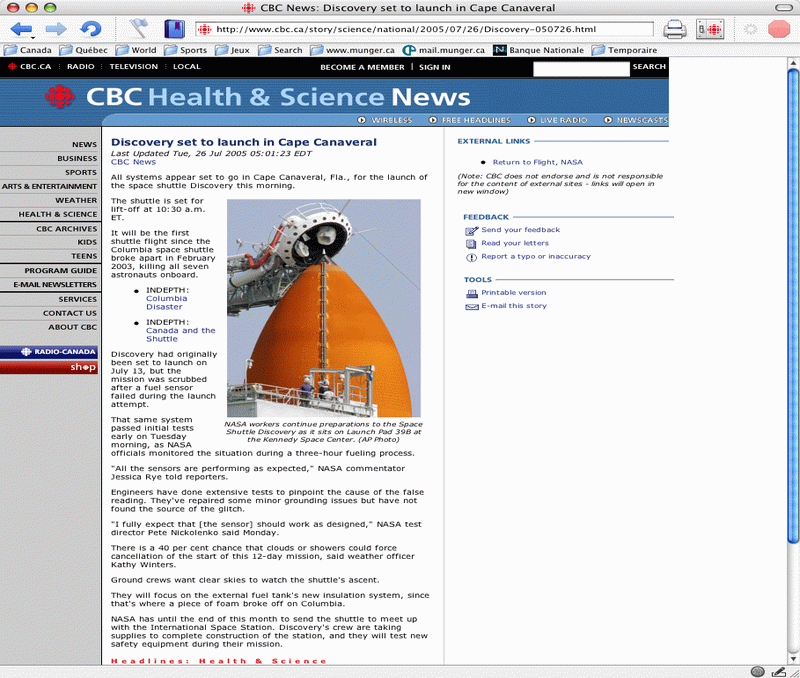

Fixed a problem with Speech Recognition where it wasn't tracking the current page properly, allowing the names of links from other pages to be spoken and OmniWeb would follow them. We now load child frames using the same history action (backwards, forwards, or reload) as their parent pipeline used, fixing some bugs in the interaction between frames and history. When we refuse to go to a page in a child frame because it's a parent page (and thus could cause an address loop), we no longer display that refused address in the browser's location field. Fixed bugs with going back to frames pages in non-instant history. Fixed a bug where reloading a frames page from history would create a new history entry for that page, replacing later history entries. This means that the loading indicators will correctly indicate that the page is still rendering, and fixes some timing issues with jumping to a named anchor where we might think that the page had finished rendering when it hadn't yet. Rather than retiring the HTML display processor as soon as its thread completes, we now wait for all main thread processing to complete as well. Added many localized images to the international versions of OmniWeb's online help files. Fixed a problem in the Portuguese localization that prevented the toolbar on the Source View window from loading. The browser window toolbar will now load. Now, when a connection fails for this reason, there will be a message logged in OmniWeb's Error Log.

¤ Supply a client certificate callback which simply logs a warning, since we don't actually support client certificates. ¤ The visited link color is now used for pages in your persistent history in addition to any pages viewed in your current session. (The Apple Store recently updated their layout to use 1x1 transparent images as the background for a number of their table cells.) ¤ Improved performance of the initial rendering of 1x1background images so pages like load more quickly. This behavior is controlled by the new OWStopLoadingOldPageWhenLoadingNewPage default.

¤ When a page is the process of rendering and a link on the page is clicked, we now immediately abort the loading of the current page and begin loading the new page rather than continuing the current load while waiting for data from the new page to arrive. (To resume the normal unedited state, you can delete out all the text from the location field and stop editing it.) ¤ We're now much more careful about preserving location field edits, so they won't get accidentally lost when mousing over a link or switching applications or whatever. (The window will shrink from this size to accomodate the dock, etc.) ¤ Set the default browser window size to 748x1200, so people who don't find the "Save Window Size" setting aren't stuck with a relatively small browser window. ¤ When loading child frames, we now send along a referring URL (pointing at the frame set's document) in our HTTP request headers. ¤ Another optimization to table layout it should stabilize a little more quickly now. This fixes the differing column widths on. Now we'll only do so if we are stretching a span all of whose member columns are percentages. ¤ Narrow the circumstances in which we are willing to stretch columns defined as percent width past their desired maximum. A good example of how this will improve things is the Apple Store where the leftmost column used to start out rendering on the right edge of the screen until other columns were parsed. ¤ Made an optimization that further reduces jumpiness when laying out tables. Incidentally, right now the latest version is beta 6. In imitation of gplex, I will start posting new threads every time a new sneaky peek of OmniWeb comes out.


 0 kommentar(er)
0 kommentar(er)
